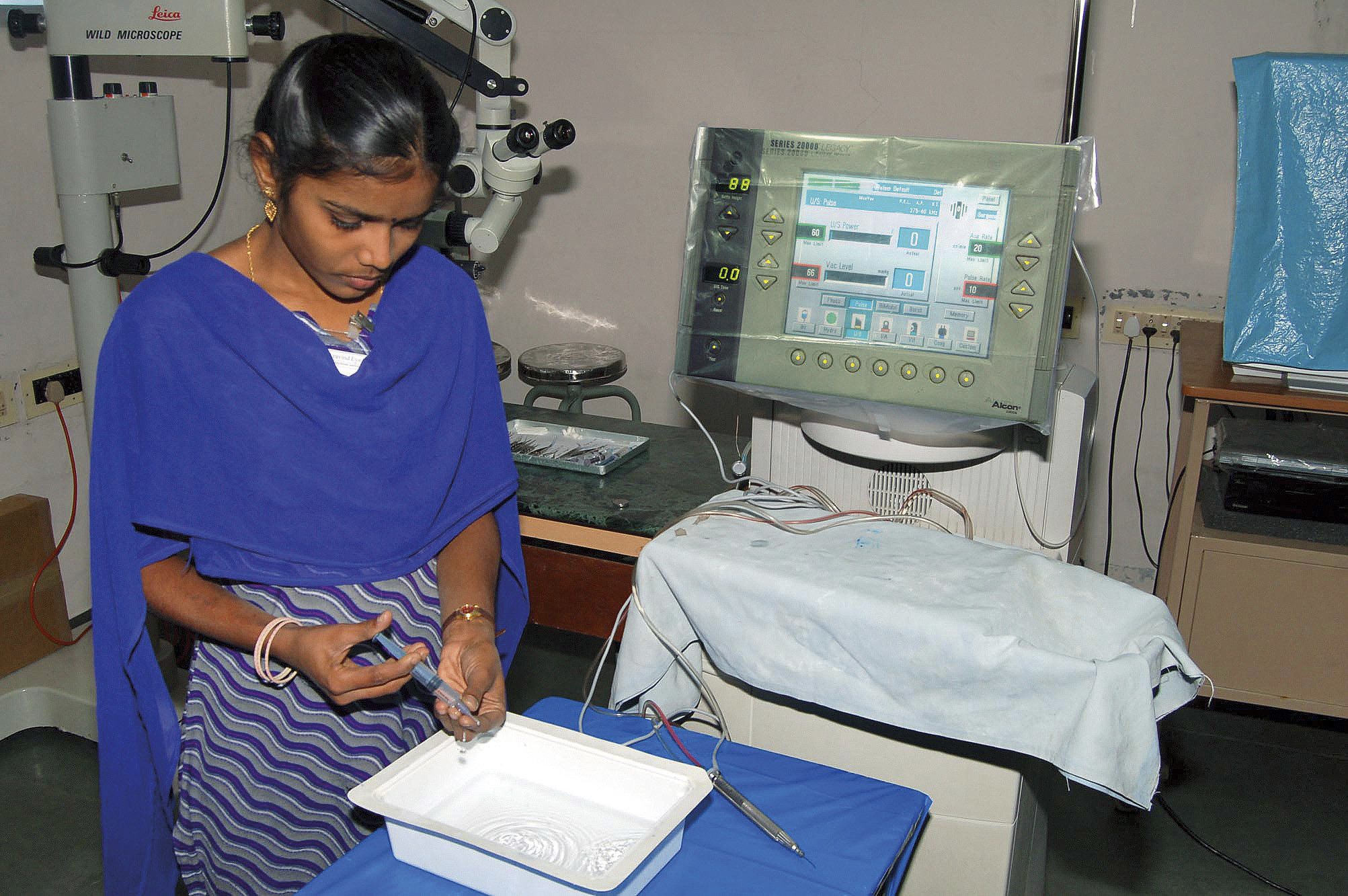Targeting Failures in the Market for Blood Donations in India

A technician at Aravind Eye Hospital, India. Credit: Community Eye Health
Study Context
While blood transfusions are a crucial component of medical systems, the availability of blood differs drastically across countries. In low-income countries, the need for blood often massively exceeds supply (LMIC blood donation rates trail those in high income countries by a factor of six), leading to preventable morbidity and mortality (Bates et al. 2008). This project investigates reasons for low blood donation rates and avenues to increase them.
India, in absolute terms, has the largest blood shortage in the world. Typical for lower-income countries, it has a fragmented, decentralized blood market and high rates of replacement donations as a condition for blood transfusions (in contrast to voluntary donations). The government and various NGOs have recently expressed interest in increasing blood donations.
Study Design
Jonathan aims to study two potential paths towards increasing blood donations. The first is to see whether past blood donations during “big push” events lead to persistently higher blood donations in the future. During the Covid-19 Delta wave in 2021, India experienced such an event, where demand for replacement donations induced many to become first-time blood donors.
Jonathan’s second area of study is to see whether incentives for blood donations can increase donations. In India, it is illegal to pay for blood donations, so instead, Jonathan plans to offer forward insurance contracts where those who give blood receive a voucher redeemable for a future blood transfusion. This will be run as a randomized control trial (RCT) in collaboration with blood banks in India.
Results and Policy Lessons
Results forthcoming.

